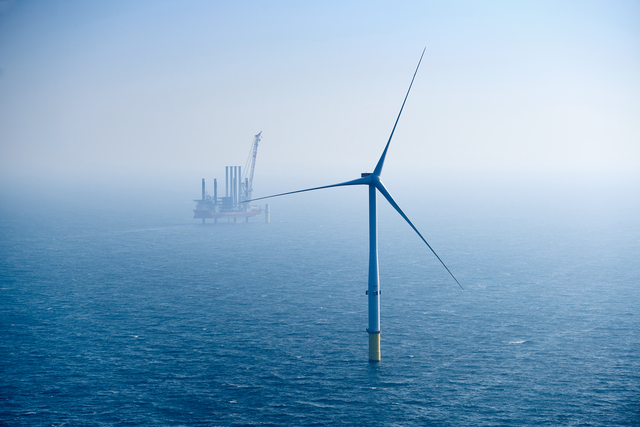Offshore wind farm scheme halted over soaring costs
Swedish energy company Vattenfall has halted plans for its Norfolk Boreas offshore wind farm project off the north Norfolk coast, which is designed to provide electricity to 1.5 million homes in the UK.

Photo: Vattenfall
The company said costs for the 1.4 gigawatt scheme had risen by 40% owing to inflation and supply chain delays and it was stopping the project.
The decision represents a major setback for the county’s up-and-coming energy industry.
Vattenfall president and chief executive officer Anna Borg said: “Although demand for fossil-free electricity is greater than ever, the market for offshore wind power is challenging.
“Higher inflation and capital costs are affecting the entire energy sector, but the geopolitical situation has made offshore wind and its supply chain particularly vulnerable.
“Overall, we see cost increases up to 40%,” she said. “This development affects future profitability and means Vattenfall has made an impairment for wind power.
“We have decided to stop the development of Norfolk Boreas in its current form and not take an investment decision now due to mentioned factors, which triggers the impairment.”
Vattenfall said it will examine the best way forward for the entire Norfolk Zone, which in addition to Boreas also includes the Vanguard East and West projects. The three projects combined were expected to produce around 4.2 GW of electricity.
Norfolk Boreas was given government approval in 2021, followed by Norfolk Vanguard in 2022.
However, Vattenfall added that work on the Norfolk Vanguard part of the Zone will continue as planned.
The project’s 60-kilometre onshore cable route will run from Happisburgh to an expanded National Grid substation at Necton, passing through the Reepham district to the north and west of the town.
The main onshore construction work is due to commence in September. Vattenfall said this initial phase of activity will be on the farthest west 20-km section of the cable route, from Necton to the River Wensum, for the first 12 months of the programme.
These works will include mobilisation areas, access creation, fencing, drainage, de-vegetation, ecology mitigation and duct installation (trenched and trenchless).
At the same time, the archaeology programme is continuing along the whole onshore cable route, as well as targeted ecology mitigation, highway improvements and establishment of the onshore cable route main construction compound, which will be located adjacent to the A140 near Aylsham and will remain in use for the duration of the onshore construction programme.
For the remaining 40-km stretch of the cable route, from the River Wensum to Happisburgh, the same onshore construction work will start in summer 2024 and continue through 2025.
Updated: 26 July 2023, 14:41
See our earlier story:
